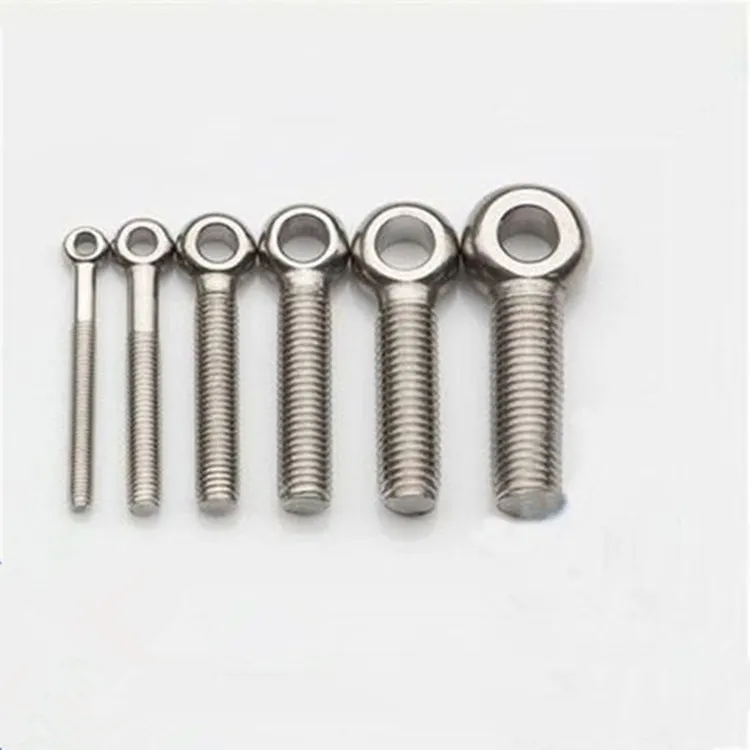

hex socket self tapping screw
दिसम्बर . 07, 2024 06:52 Back to list
hex socket self tapping screw
The Versatility of Hex Socket Self-Tapping Screws
Hex socket self-tapping screws are an indispensable fastening solution in various industries, ranging from construction to automotive manufacturing. These screws are engineered for efficiency and effectiveness, providing a reliable method for joining materials without the need for pre-drilled holes. This article explores the design, benefits, applications, and maintenance of hex socket self-tapping screws, illustrating their significant role in modern assembly processes.
Design and Features
The hex socket self-tapping screw features a hexagonal recess head, which allows for the use of a hex key or Allen wrench, providing a secure grip and ensuring adequate torque during installation. The self-tapping capability of these screws is one of their most outstanding aspects. They possess sharp, pointed threads that can penetrate various materials—such as metal, plastic, and wood—creating their own mating threads as they are driven into the substrate. This feature not only simplifies the installation process but also saves time, eliminating the need for additional hardware or drilling tools.
Manufactured from durable materials like stainless steel, carbon steel, or other alloys, these screws are designed to withstand different environmental conditions, from corrosion resistance to extreme temperatures. The coating options available, such as zinc plating or black oxide, further enhance their longevity and suitability for outdoor applications.
Benefits of Hex Socket Self-Tapping Screws
One of the primary advantages of hex socket self-tapping screws is their efficiency. Their design allows for quick installation, reducing labor time and costs associated with complex fastening systems. The ability to cut their own threads means that assemblers can work faster without compromising the integrity of the joint.
Additionally, the hex socket provides superior torque transfer compared to other screw types. This means users can exert more force without the risk of stripping the screw head, making hex socket screws particularly valuable in high-torque applications. The tighter grip also helps prevent slippage, contributing to overall assembly precision.
Moreover, the versatility of these screws cannot be overstated. They can be used in a wide range of materials and are suitable for both indoor and outdoor applications. Whether it’s securing metal panels in construction or installing automotive parts, the adaptability of hex socket self-tapping screws makes them a favorite among engineers and technicians alike.
hex socket self tapping screw

Applications Across Various Industries
The applications of hex socket self-tapping screws are vast. In the construction sector, they are commonly used to attach metal studs, fix roofing sheets, and join metal framing. The automotive industry utilizes these screws for assembling body parts, securing engine components, and more. Electronics manufacturers benefit from their use in assembling devices where precision and durability are paramount.
In addition to these sectors, hex socket self-tapping screws are also prevalent in furniture manufacturing, HVAC installations, and appliance assembly. Their ability to create secure and lasting joints makes them ideal for products that require stability over time, even when subjected to stress or movement.
Maintenance and Best Practices
To ensure the longevity and effectiveness of hex socket self-tapping screws, proper maintenance and installation practices are essential. Users should select the appropriate screw size and type for the specific application, considering factors such as material thickness and the environment in which the screws will be used.
Regular inspections of assemblies can also help identify signs of wear or degradation. If any screws appear loose or damaged, they should be replaced promptly to maintain structural integrity. Additionally, using the correct tools—specifically, a high-quality hex key—can prevent stripping and ensure proper tightness.
Conclusion
Hex socket self-tapping screws exemplify innovation in fastening technology. Their unique design, combined with the benefits of efficiency and versatility, makes them a critical component in various applications across multiple industries. Understanding their features, selecting the right types for specific projects, and adhering to maintenance best practices ensure that these screws continue to provide reliable performance for years to come. As industries evolve and demands increase, hex socket self-tapping screws will undoubtedly remain at the forefront of fastening solutions.
Latest news
-
Hot Dip Galvanized Bolts-About LongZe|High Strength, Corrosion Resistance
NewsJul.30,2025
-
High-Strength Hot Dip Galvanized Bolts - Hebei Longze | Corrosion Resistance, Customization
NewsJul.30,2025
-
Hot Dip Galvanized Bolts-Hebei Longze|Corrosion Resistance&High Strength
NewsJul.30,2025
-
High-Strength Hot-Dip Galvanized Bolts-Hebei Longze|Corrosion Resistance&High Strength
NewsJul.30,2025
-
Hot Dip Galvanized Bolts-Hebei Longze|Corrosion Resistance&High Strength
NewsJul.30,2025
-
Hot Dip Galvanized Bolts - Hebei Longze | Corrosion Resistance, High Strength
NewsJul.30,2025

